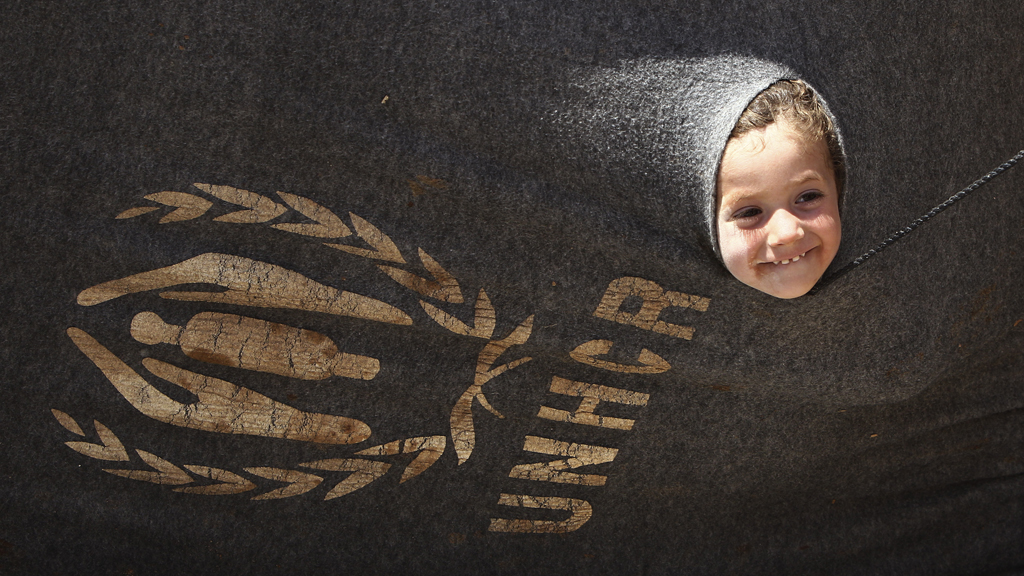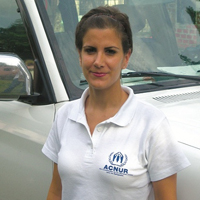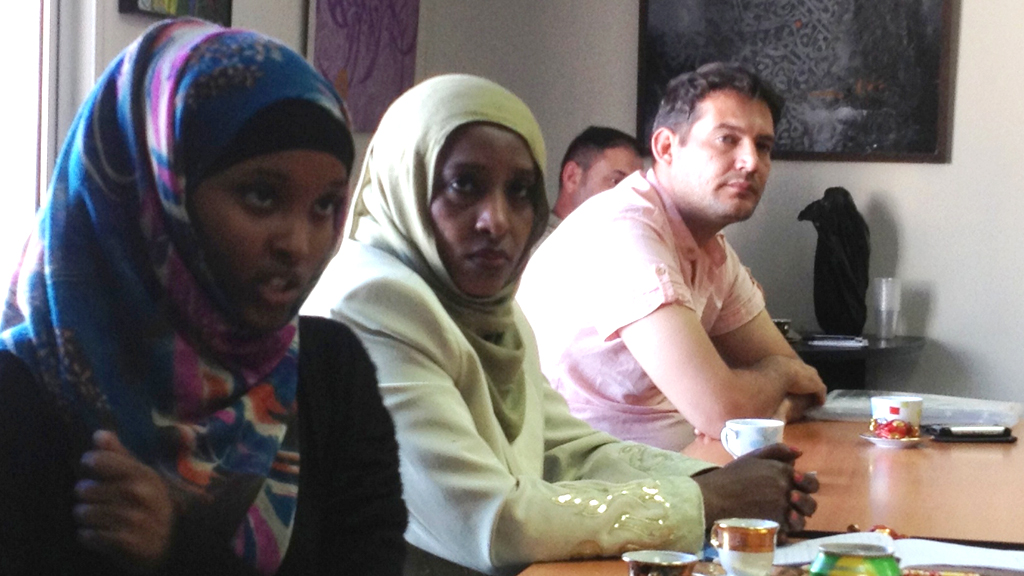Hidden heroes on the other side of Syria’s refugee crisis
On World Refugee Day, Reem Alsalem from UNHCR writes for Channel 4 News on the refugees who came to Syria to start a new life – but find themselves trapped in a new crisis.

We tend to forget that the humanitarian consequences of Syria‘s two-year-old conflict are not limited to the Syrian people themselves, but also affect the thousands of refugees who came to this country.
Half a million Palestinian refugees and a further 51,000 refugees registered with the United Nations Refugee Agency (UNHCR) – mainly Iraqis, Somalis, Afghanis and Sudanese – are living in Syria today.
And not only have these refugees been subjected to the same tragic developments as Syrian-born refugees, they are also forced to “relive” the events of their first displacement – a distressing period which they have tried very hard to put behind them.
Syria has in so many ways been a country that has allowed them to do just that. Vivian, for example, a Christian Iraqi woman from Baghdad, told me how “comfortable” her life was prior to the conflict. Having arrived in 2004, she was helped by Syrians to find a place to rent and to work.
Few of us know that as recently as 2011, the year the conflict started, Syria ranked as the third largest country of asylum. In addition to the Palestinian refugees it has hosted for more than 60 years, Syria became home to one million Iraqis at some point fleeing the war in Iraq and its aftermath, and shared its resources with up to 9,000 refugees and asylum-seekers from other countries. Arab refugees in particular received special treatment; able to enjoy most of the rights of Syrian citizens, allowing them to integrate in a way unparallelled in other countries in the region.

‘We are from Syria’
I first got a glimpse of how well established refugees were in Syria, and how grateful they were for it, during a trip to Damascus a month ago when I met with Iraqi and Somali refugee women (Reem Alsalem, pictured). I had also met some Palestinian refugees from Syria in my recent trips to Egypt and Turkey. In the conversations that I had with all of them, I was struck by how fondly and lovingly refugees spoke of Syria and its people. In fact, with the Palestinian refugees I met in particular, I noticed the most curious thing: Palestinian refugees from Syria would introduce themselves to me with the phrase: “We are from Syria”. The fact they did not introduce themselves the usual way (“We are Palestinian refugees from X or Y”) was telling. These Palestinian refugees felt part of Syria’s social fabric.
There is another reason why the sentiments of refugees towards their host country is important. To me, it partially explains why Syrians themselves feel let down. In my discussions with them, Syrians in exile have often appeared perplexed at the lack of welcome afforded to them since the crisis began.
If these volunteers were necessary during times of peace, they have proved even more necessary during times of conflict.
I had not fully understood how attached refugees were to Syria and how profoundly their lives had changed with the onset of the conflict until I met 15 refugee volunteers at UNHCR’s office in Damascus. They had been gathering for regular weekly meetings.
These refugees are part of the outreach programme UNHCR started in Syria in 2007, the idea being to enlist refugees themselves to help and support each other. It was partially in response to the challenge of having thousands of refugees scattered in hundreds of urban centres across the country; we needed to find an effective mechanism to reach out to them. More importantly, it allowed us to empower refugees themselves to manage their own affairs. So refugees were selected according to carefully-crafted criteria to act as focal points for others.
More from Channel 4 News: Syria Files - special report
One of the criteria was the extent of their connections within the refugee community itself, be it Iraqi or Somali or others. They underwent training on all sorts of issues, from stress management to the dangers of early marriage. To me, these refugee volunteers were soon expected to be a superman or a superwoman. And while one might expect refugees to shy away from a full-time job with multiple hats, the scheme attracted more refugees than UNHCR had anticipated.
If these volunteers were necessary during times of peace, they have proved even more necessary during times of conflict. Suddenly, they found themselves dealing with issues much more serious than before: homelessness; loss of livelihood, violence and fear.

Nada, an Iraqi refugee who had worked for five years as a volunteer, explained to me how deteriorating security had forced her and others to adjust how they work. “The security situation became worse. Before we would go out even at midnight to attend a situation,” she said.
“Now there are many restrictions. There are many checkpoints to pass. Now we cannot be as spontaneous as before. We cannot go out after 5pm. Even the sick people we have to take to the hospital, we cannot do it any time, but only in the morning. It means that we now have to start our work earlier to finish earlier.”
We had to become more assertive and strong, since we realised they simply cannot afford to fall apart, as many people depended on us. Shaza, refugee volunteer
Since the beginning of the conflict, many Iraqi refugees are known to have returned to Iraq, despite the fact the situation there is certainly not getting better. Many of them are acutely aware of that, but feel they have no choice.
However, the consequences of these exceptional times and the exceptional conditions in which refugee volunteers are working, are not all bleak. The situation has forced the remaining refugee volunteers to better organise themselves. In the words of Shaza: “We had to become more assertive and strong, since we realised they simply cannot afford to fall apart, as many people depended on us”.
Her words forced me into a deep reflection. Frankly I wondered whether, in their shoes, I would find the strength to serve others if my own life were falling apart. Leaving the meeting I felt a sense of privilege at having met these volunteers, the unsung heroes of this conflict.
Reem Alsalem is based at UNHCR in Beirut. All names have been changed to protect the identity of the refugees.